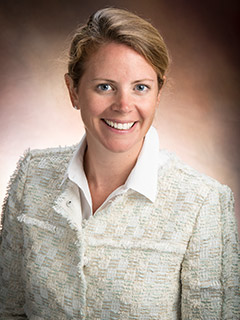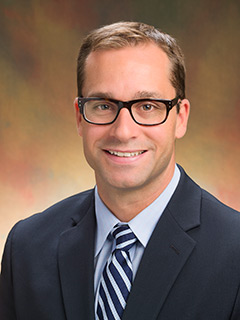HOW CAN WE HELP YOU? Call 1-800-TRY-CHOP
In This Section
Gene Therapy Approval, 22q11.2 Deletion Syndrome, ASCI Inductions, Transit-Amplifying Cells, Machine Learning

The New Year dawned with the celebratory news that three Children's Hospital of Philadelphia researchers were inducted into the American Society for Clinical Investigation, and a review on research of 22q11.2 deletion syndrome guidance was selected as the Editor's Choice of the high impact journal Genetics in Medicine. Read on to learn about a review that explores the best machine learning models for neurologic outcomes after cardiac arrest, and a CHOP-led study that defines the role of a specific gene in transit-amplifying intestinal cells.
CHOP Research Provided Foundation for New Gene Therapy Approved by Health Canada to Treat Hemophilia B
Pfizer Canada ULC announced that Health Canada approved fidanacogene elaparvovec (BEQVEZ), an adeno-associated viral (AAV) vector-based gene therapy for the treatment of patients 18 years or older with moderately severe to severe hemophilia B who are negative for neutralizing antibodies to variant AAV serotype Rh74.
CHOP scientists created the AAV vector and discovered the variant transgene for the therapeutic product. It utilizes a bioengineered AAV protein shell to deliver the high-activity human FIX gene, which is a protein that assists with blood clotting. Once treated, the goal of this gene therapy is that eligible patients will be able to produce FIX via this one-time treatment, rather than having to regularly receive intravenous FIX. Founder and Director of the Clinical In Vivo Gene Therapy Center at CHOP, Lindsey George, MD, conducted the phase 1/2 trial.
"Beqvez is a paradigm shifting therapy for hemophilia B patients, liberating patients from recurrent intravenous factor infusion by providing a one-time disease altering therapy," Dr. George said. "This gene based therapy was conceived of and developed in the laboratory of Katherine High, MD, who was a long-standing CHOP investigator and University of Pennsylvania faculty member. Thereafter, it was an honor to lead the first-in-human trials. The approval of Beqvez gene therapy is an exciting milestone for hemophilia B patients and another remarkable example of CHOP's leadership in gene therapy."
In the United States, a licensing application for fidanacogene elaparvovec is currently under review by the Food and Drug Administration with a decision date planned for the second quarter of 2024.
Learn more in this Pfizer press release.
CHOP-led Review of 22q11.2 Deletion Syndrome Distinguished as Editor's Choice

Donna McDonald-McGinn, MS, CGC
A review of 22q11.2 deletion syndrome conducted by researchers from CHOP and the University of Pennsylvania was selected as the top 2023 Editor's Choice article by Genetics in Medicine, the official journal of the American College of Genetics and Genomics.
22q11.2 deletion syndrome is the most common microdeletion syndrome in humans and can lead to varying physical, cognitive, and behavioral disorders. CHOP has the largest clinical and research program in the world for these patients.
The paper, "Updated clinical practice recommendations for managing children with 22q11.2 deletion syndrome," reviewed more than 2,300 22q11.2 relevant studies to provide updated recommendations for the optimal care, surveillance, and management of symptoms for children and adolescents with this syndrome. It addresses new considerations for speech-language disorders and prenatal screenings that were previously undescribed. Researchers also included new data on physical features like scoliosis that may develop due to the deletion, and they outlined the developmental, cognitive, and psychiatric phenotypes that concern parents throughout childhood and beyond.
"This paper was the culmination of incalculable efforts on the part of expert co-authors from around the globe representing more than 20 sub-specialties, under the auspices of the 22q11.2 Society over a period of two years, including amazing colleagues from the 22q and You Center at CHOP and Penn," said senior author, Donna McDonald-McGinn, MS, CGC, associate director of the Clinical Genetics Center, and director of the 22q and You Center. "We were also delighted to include input from the patients and families we serve. It was a labor of love, and we are so very pleased with the outcome, as being named an 'Editor's Choice' in the highly regarded journal Genetics in Medicine is a tremendous and humbling honor."
Learn more in the Editor's Choice Note.
Three CHOP Physician Scientists Honored for Contributions to Excellence in Medicine
The American Society for Clinical Investigation elected 100 new members from across 50 institutions to be inducted in April. Inductees are chosen for their contributions to excellence in academic medicine, and three will represent CHOP.
William Peranteau, MD, an attending surgeon in the Division of Pediatric General, Thoracic and Fetal Surgery, focuses on fetal development as it relates to the potential understanding of and fetal intervention for congenital anomalies.
Director of the Global Health Research Affinity Group, Elizabeth Lowenthal, MD, MSCE, works to improve the health of children in resource-limited areas. Her research focuses on treating HIV-infected children and adolescents, as well iron-deficient anemic infants.
"It’s a great honor to be recognized by my peers as a leader in scientific efforts to improve the health of all people. As a physician-scientist focused on the health priorities of children in low- and middle-income settings, I’m thrilled to have this platform to bring awareness to some of the child health needs that could benefit from more attention from scientific leaders and funders in the future," Dr. Lowenthal said.
Elizabeth Foglia, MD, MA, MSCE, is an attending physician in the Division of Neonatology who identifies the best methods to monitor and perform neonatal resuscitation. Her goal is to optimize outcomes for high-risk infants by characterizing interventions to prevent mortality and long-term disability.
"I'm honored to be inducted into the ASCI. The society includes leading physician scientists from around the country; this provides exciting opportunities for collaboration and advancing the field of neonatal resuscitation research," Dr. Foglia said.
Learn more in the ASCI announcement.
Researchers Identify Previously Under-defined Role of Transit-Amplifying Intestinal Cells
The survival and proliferation of transit-amplifying (TA) cells are essential for intestinal homeostasis, but their rapid proliferation makes them vulnerable to DNA damage from chemotherapy and radiation, causing chemotherapy-induced gastrointestinal toxicity and radiation-induced gastrointestinal syndrome in more than 80% of cancer patients. A CHOP-led study sought to define the genes associated with TA cells to determine if possible therapeutic drugs designed to protect TA cells could reduce the amount of DNA damage and promote regeneration. The results were published in the Journal of Clinical Investigation Insight.
"Our study highlights the crucial role of RNA modifications in regulating growth factor signaling in the intestine with important implications for both homeostatic tissue renewal and epithelial regeneration," said Kathryn Hamilton, PhD, investigator in the Division of Gastroenterology, Hepatology, and Nutrition, and senior author on the study.
Researchers identified that METTL3, or RNA methyltransferase-like 3, is required for the survival of TA cells in the small intestine. Through RNA sequencing in murine models, researchers revealed that METTL3 deletion induced cell death in small intestinal TA cells and decreased translation efficiency of gene transcription critical to growth factor signaling.
Machine Learning Models Offer Better Predictions for Neurologic Outcomes
A review from CHOP and University of Pennsylvania researchers analyzed more than 350 studies to determine which machine learning (ML) models had the best prediction of neurologic outcome after cardiac arrest and to examine common quantitative electroencephalogram (EEG) features applied to ML models. The review was published in Resuscitation.
EEG is most often used to predict neurologic outcomes after cardiac arrest, but interpretation of the large amount of data is time-consuming and expensive. To determine which ML models had the highest Area Under Receiver Operating Characteristics Curve (AUC) – a common performance metric to evaluate the ability of a machine learning model to predict an outcome – researchers reviewed both conventional ML models and deep neural network (DNN) models.
The Random Forest model received the highest AUC score for its ability to process hundreds of decision trees based on the input dataset. Of the DNN models, the Convolution Neural Network received the best AUC score based on how its convolutional layers, pooling layers, and fully connected layers extracted raw data to find the most relevant information to predict the outcome.
"Using a multimodal model that combines EEG features and electronic health record data may further improve prognostic performance," said Rich Tsui, PhD, FAMIA, director of the Tsui Laboratory and senior author on the study.
ICYMI
Catch up on our headlines from our Dec. 22 In the News:
- FDA Approves Two Gene Therapies for Sickle Cell Disease
- Minds Matter Researchers Conduct 'Real-time' Study of Soccer Players Heading the Ball
- More Studies Needed to Support Holistic Approach to Childhood Firearm Injuries
- Researchers Gain Insight to Design Clinical Trials for Common Epilepsy Disorders
Keep up with our news, stories, and updates in real time by following us on X, Facebook, LinkedIn, or Instagram. Meet the minds behind the science in the Bench to Bedside podcast. Or subscribe to our newsletter to receive an email every other Friday by signing up here.






